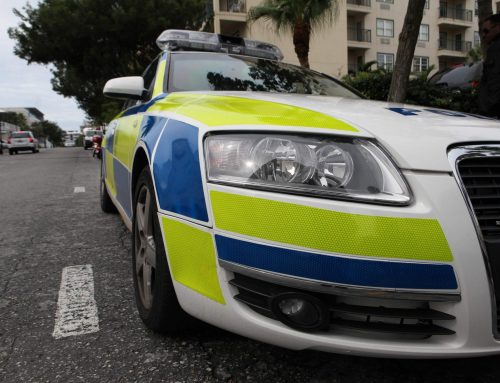Drivers at a dairy company have been given a lesson in motoring as part of a police campaign to improve safety on the roads.
Traffic officers from the Bermuda Police Service taught defensive driving techniques to staff and their families at Dunkleys Dairy.
The lecture included graphic accident footage and analysis of serious crashes.
Inspector Dorian Astwood said human error was often a major factor.
He warned the class: Nobody is invincible, all it takes is one second for something to go wrong.
However, he said: If you are prepared, you will assist yourself and others greatly.
Mr Astwood said inattention, speed and drink driving were significant factors in road collisions.
He added: Speed is always a factor and alcohol and drugs drastically affect vehicle operation we all know that.
Mr Astwood added that the use of mobile phones on the move was another high-risk activity.
The session was part of an initiative in high schools last year, but has now been rolled out to adults.
Inspector Robert Cardwell, head of the BPS roads policing unit, said: Last year, we concentrated more on getting it out to the high schools, which has given us more space to give it to the adult public sector this year.
He added the plan was to involve major companies with fleets of vehicles such as Belco, One Communications and others, in the educational drive.
Organisations that have already taken advantage of the free training include the US Customs and Immigration service and wholesalers Butterfield & Vallis.
The presentation to Dunkleys staff, held at the Police Recreation Club at Prospect, last week, also highlighted crash statistics.
Mr Astwood compared the death toll on the roads to gang-related murders and explained that a bid to cut motoring fatalities had taken a back seat to gang problems.
He said: We have now directed our focus back to road safety, and it must be our priority.
Mr Astwood also emphasised the danger posed by high-risk behaviour such as overtaking on the inside, impatience at junctions and stop signs and poor discipline at roundabouts.
He asked the Dunkleys staff: What do we think happened here? What preventative measures can we take?
Mr Astwood also discussed the problem of drink driving and its contribution to the carnage on the islands roads.
He asked his audience: Why dont we intervene?
Mr Astwood said: At the end of the day, its your conscience on the line. Its up to you to save a life.
Mr Cardwell added: We are a party island. Unfortunately, we see the results of that on our roads. Most of our accidents involved impaired driving.
He said the use of roadside breath-test checkpoints could help change the islands attitude to drink driving.
Mr Cardwell added: Culture shock is coming with sobriety testing. We have grounds to stop anyone unselectively.
He told the Dunkleys group: If we all take away defensive, alert driving from this, I know we have at least 20 safer drivers on the road and thats a start.








Leave A Comment